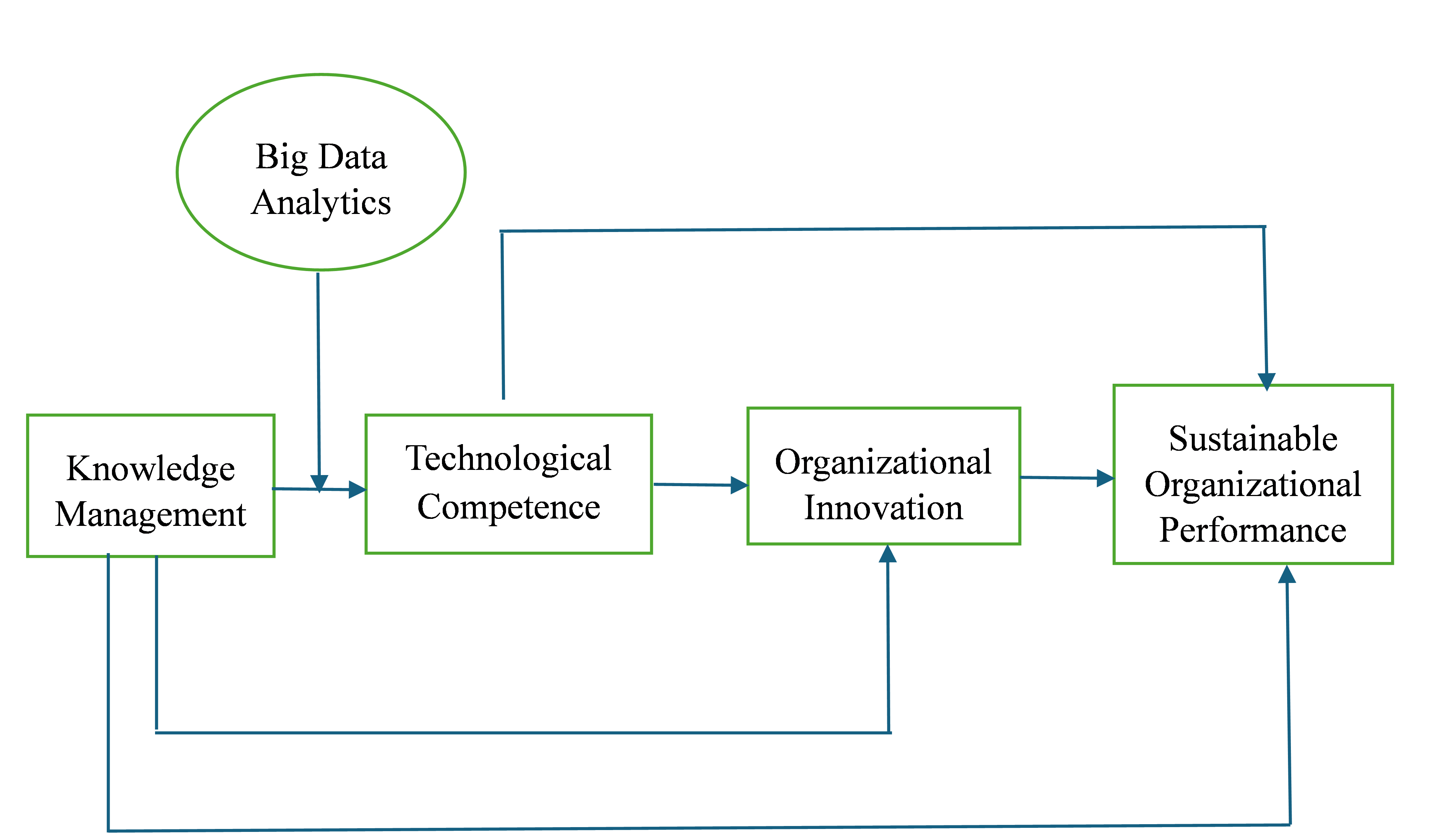Leveraging Knowledge Management to Drive Innovation and Technological Competence: The Moderating Role of Big Data Analytics
DOI:
https://doi.org/10.62019/eg4mfb53Abstract
This research explores the role of Knowledge Management (KM) in enhancing technological competence and organizational innovation for sustainable organizational performance (SOP) within IT-intensive organizations in Punjab, Pakistan. A cross-sectional design was adopted, with data collected in two phases, separated by a one-month interval, using a structured, self-administered survey. The study yielded 274 usable responses from 680 participants. By drawing upon grounded theories such as the Resource-Based View (RBV), Dynamic Capabilities Theory, and the Knowledge-Based View (KBV), the research examines how KM practices, coupled with dynamic capabilities like Big Data Analytics (BDA), influence technological competence, innovation, and performance. The theoretical framework is enriched by emphasizing the role of technological competence and organizational innovation in driving sustainable performance, with BDA acting as a moderator in these relationships. Descriptive, correlation, and regression analyses were conducted using SPSS, while Structural Equation Modeling (SEM) in AMOS was utilized to test the hypothesized relationships and explore the direct and indirect effects of KM on SOP. The findings reveal that KM significantly promotes organizational innovation, with technological competence acting as a key mediator. Furthermore, BDA strengthens the effect of KM on organizational capabilities, thereby enhancing sustainable performance. This study contributes to the literature by offering new insights into how KM, BDA, and technological competence interact to foster sustained competitive advantage. By focusing on IT-intensive organizations and using a convenience sampling technique, the research highlights the critical role of KM and BDA in achieving organizational innovation and long-term performance. Future research could expand this framework to other contexts and utilize diverse sampling methods to enhance the generalizability of the findings.

Downloads
Published
Issue
Section
License
Copyright (c) 2025 Syed Shahid Hussain , Afshan Ali

This work is licensed under a Creative Commons Attribution-NonCommercial-NoDerivatives 4.0 International License.






